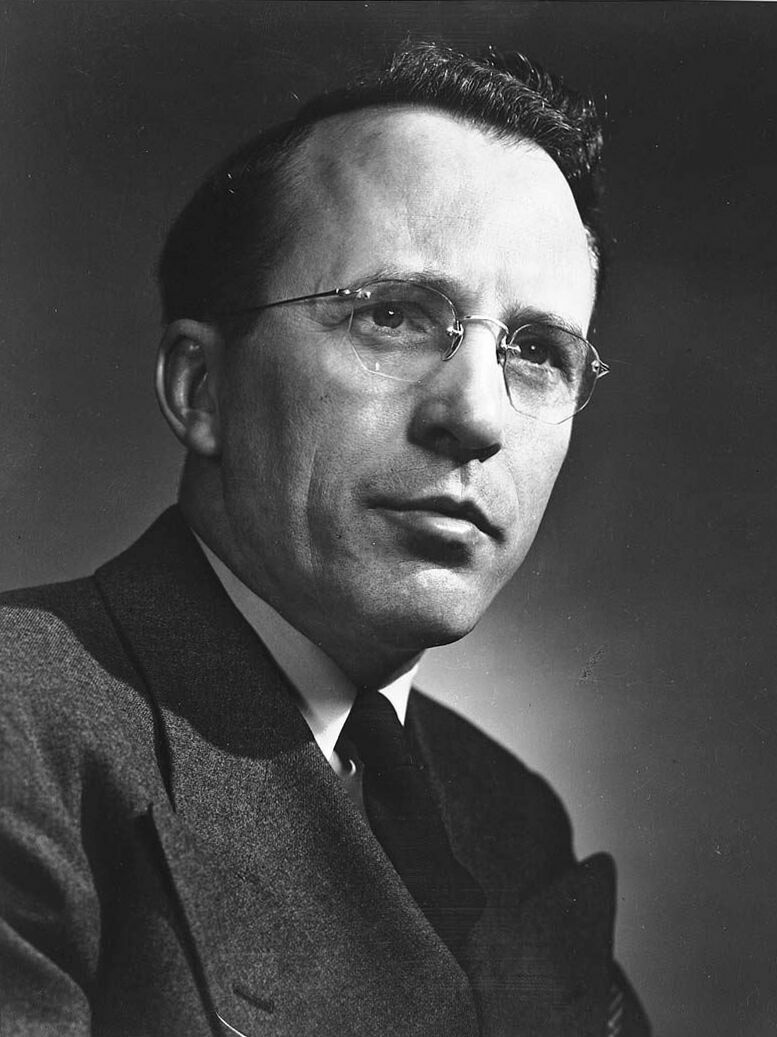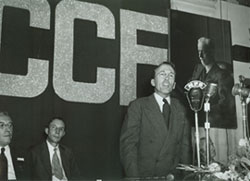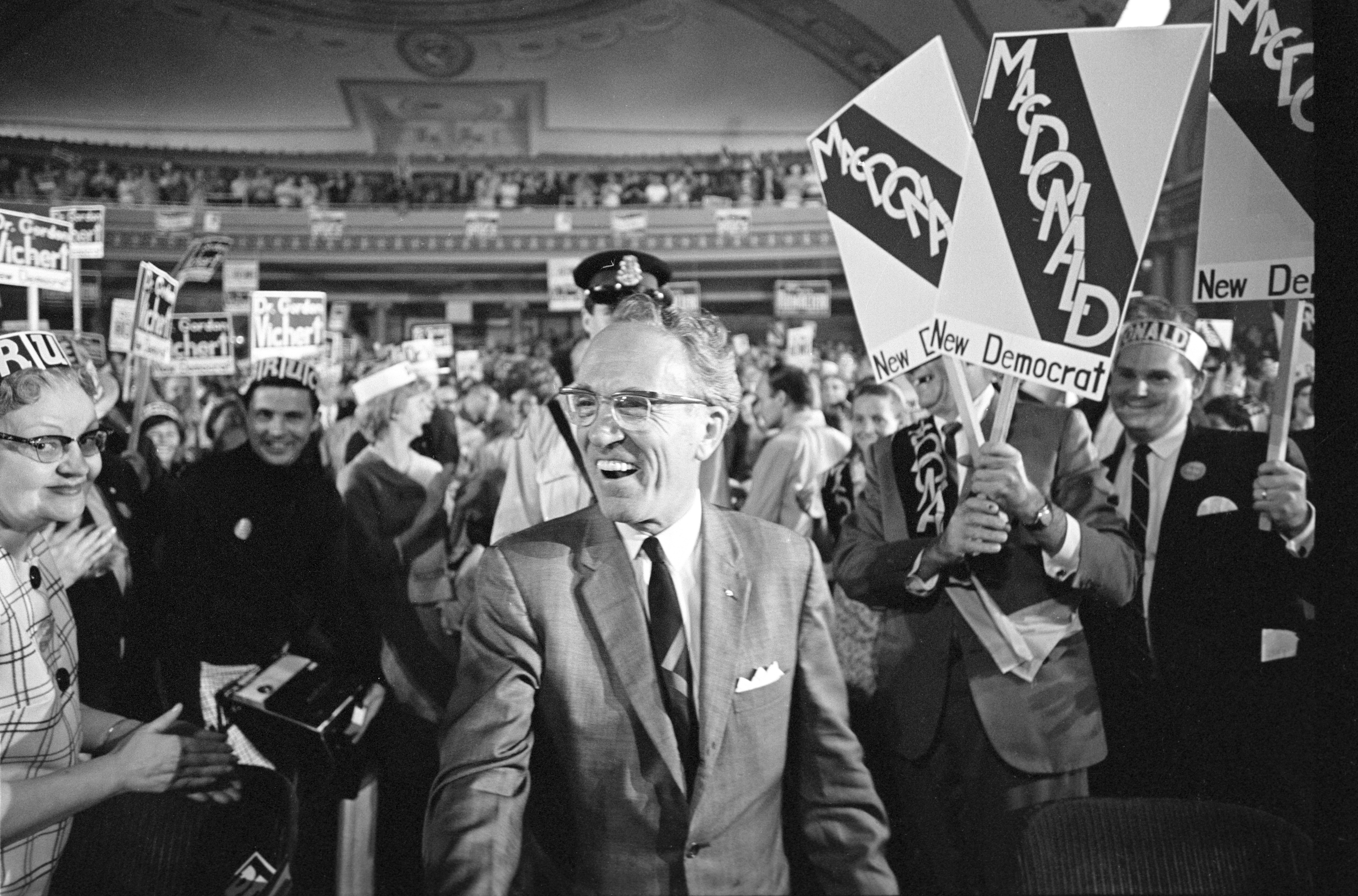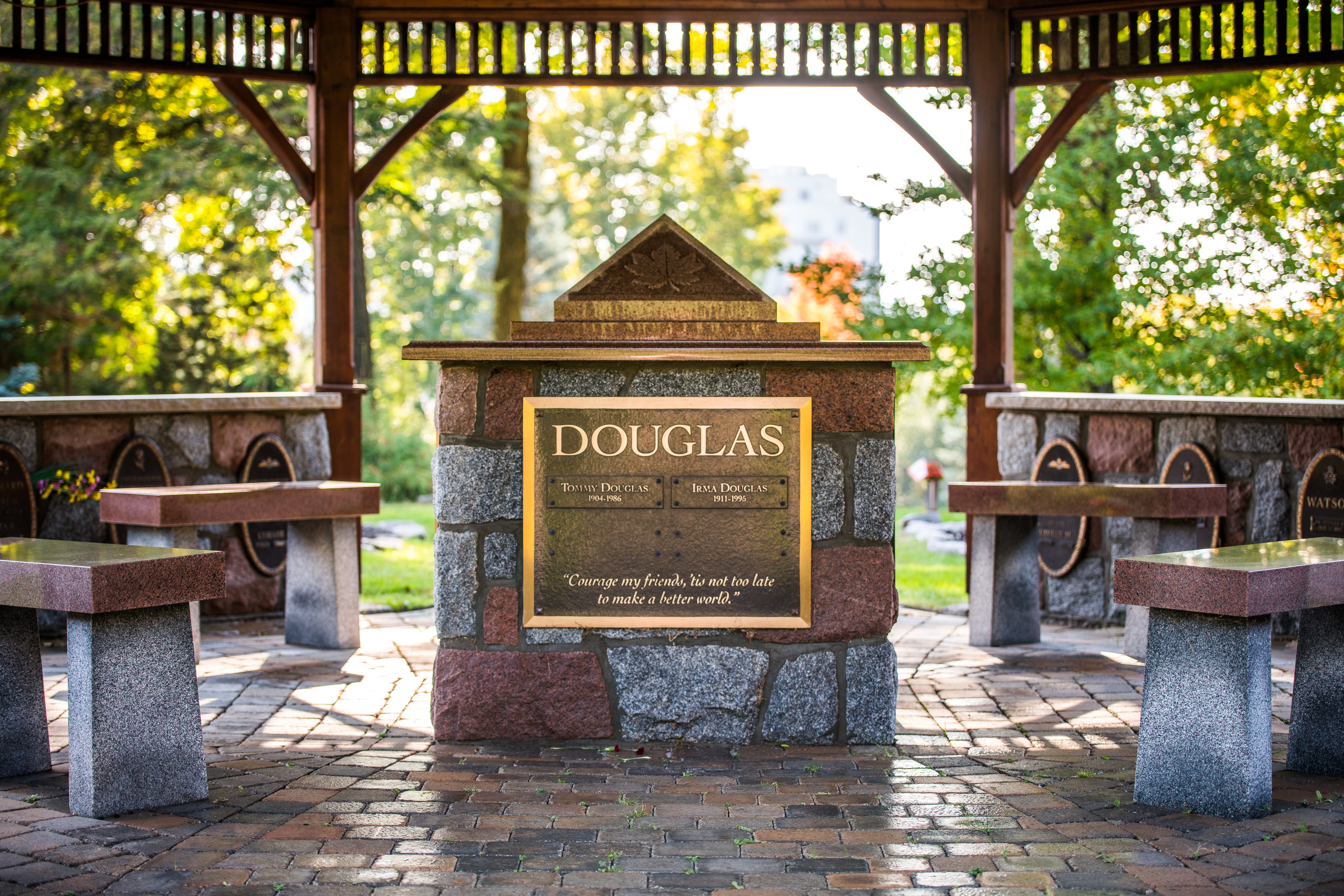
From Premier to Father of Universal Healthcare - Tommy Douglas
Tommy Douglas
Section 64, Graves 285, 286
Born on October 20, 1904 in Falkirk, Scotland. In 1911, Tommy, his mother and his sister moved to Winnipeg to join his father who had moved there the previous year. Shortly after settling in Winnipeg, Tommy was diagnosed with osteomyelitis in his right leg. Tommy’s family was not wealthy and subsequently his family could not pay for the best or most immediate treatment. The delay nearly cost Tommy his leg. This experience marked the beginning of Tommy’s quest for universal, public health care.
By the time he was 18, Tommy set his sights on a career as a preacher. In 1924, when Tommy reached 20 years of age, he enrolled at Brandon College in Manitoba, where he would obtain his Bachelor’s degree in the Faculty of Arts. In college, Tommy was active in elocution classes, drama and debating. His peers accepted Douglas as a natural leader and scholar. During weekends and summer months, Tommy would speak at rural churches. In the fall of 1928, Tommy became a minister at Calvary Baptist Church in Weyburn, Saskatchewan. He felt first hand the harshness of the Depression in the prairies. Douglas knew that something had to be done for the common man. His experience with the vast unemployment and poverty transformed T.C. Douglas, the clergyman, into a social activist.
By 1932, Douglas helped organize an Independent Labour Party in Weyburn of which he became president. The movement soon evolved into the Farmer Labour Party. This party offered hospital care for everyone on an equal basis, including unemployment insurance and universal pension.
By July of 1932, the labour parties of the four western provinces formed an alliance under the name Cooperative Commonwealth Federation (CCF). The CCF became Canada’s first national socialist party.
In 1935, Douglas was elected into parliament under the CCF. At the age of 31, Douglas impressed the House of Commons with his fiery, yet relevant speeches. By the end of the 1930’s, the Depression and WWII had created an opening for popular support towards the CCF and its socialist ideas and by the end of WWII Douglas was promoting social reform. In a radio broadcast, he said: “If we can produce such abundance in order to destroy our enemies, we can produce in equal abundance in order to provide food, clothing and shelter for our children.” Douglas also argued that Ottawa had no effective western farm policy.

By the early 40’s, Tommy moved away from the federal politics and became leader of the Saskatchewan provincial CCF party (1942) while maintaining his seat in the House of Commons. In 1944, the CCF under Douglas, won the provincial election to become the first socialist government in North America. Douglas emphasized that his brand of socialism depended on political and economic democracy.
In 1944, the old age pension plan included medical, hospital and dental services. Douglas’ government radically changed the education system and established larger school units and provided the University of Saskatchewan with a medical school. In his first four years in government, Douglas paid off the provincial debt, created a province wide hospitalization plan, paved the roads, and provided electricity and sewage pipes to the common man.
In 1948, Douglas was re–elected Premier after a long and difficult campaign due to surging fears of Communism. He would be re–elected for three more terms to serve Saskatchewan as Premier for 17 years. In 1961, the CCF joined with big labour unions to create the New Democratic Party in which Douglas was elected leader.

In Saskatchewan, the North American Medical Establishment tried to defy Medicare, Douglas’ top priority project. The striking doctors were no match for Douglas. Tommy proved two things: that it was possible to develop and finance a universal Medicare system and that the medical profession could be confronted. By 1971, Douglas resigned as leader of the NDP, although he remained the party’s energy critic until 1976.
Tommy Douglas died of cancer on February 24, 1986 at the age of 82.

During 42 years in politics, Douglas proved himself as an outstanding Canadian leader. He is largely responsible for our central banking, old age pensions, unemployment insurance and our universal Medicare.

